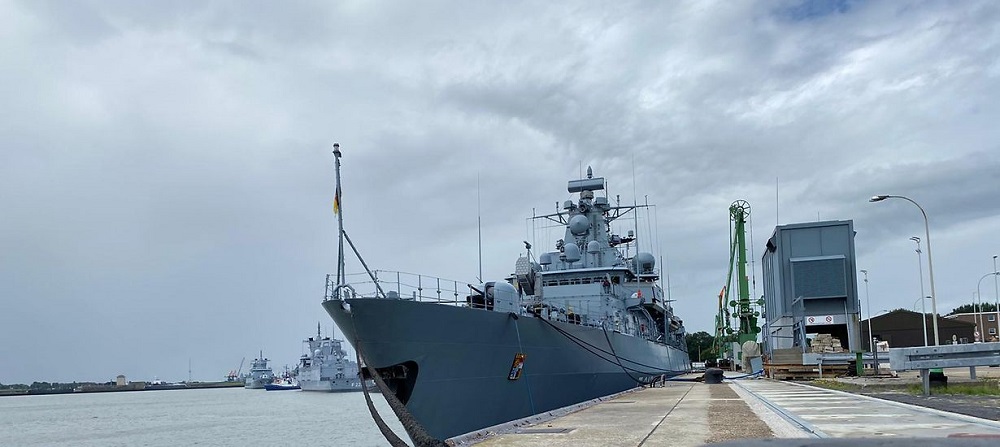German warship sails for South China Sea after two decades
The journey shows Germany’s strategy on the diversification of economic partnerships and the strengthening of international law.
German frigate Bayern August 2 set sail for a six-month Indo-Pacific tour, including a passage to the South China Sea (called East Sea by Vietnam), becoming the first German warship to sail the contested sea since 2002.
| Bayern frigate set to leave Wilhelmshaven port. The photo was taken on August 2 by the German Federal Foreign Office |
Bayern frigate with 230 crew members onboard will leave the north-west German port of Wilhelmshaven to join patrol and training mission, dock at ports in partner countries, and take part in multilateral activities.
German Foreign Minister Heiko Maas said the tour is strengthening security policy cooperation with partners in the Indo-Pacific region
The Indo-Pacific is where the international order of the future will be decided so Germany wants to help shape it and to take on responsibility for upholding the rules-based international order. In addition, the country wants to expand its partnerships and involvement in the region, including through the EU’s Strategic Partnership with ASEAN and consultations on security policy with Japan and Australia, Heiko Maas commented on the frigate’s departure.
The German Federal Foreign Office (Auswärtiges Amt) said that Germany regularly underlines the significance of the UN Convention on the Law of the Sea (UNCLOS) as a comprehensive, universally recognized legal framework, particularly its provisions on freedom of navigation in international waters, as well as the obligatory mechanisms for the settlement of disputes.
The deployment amounts to a heavy lift for the German sea service, according to Sebastian Bruns, German naval analyst and guest lecturer at the US Naval Academy.
“Operationally, it’s an important contribution, although at the price of gutting the fleet,” he said, noting ship maintenance plans and crew training schedules had to be significantly altered to make the trip possible. “Politically, it’s even more significant, towards allies both in Europe and in the region, and towards China.”
In September 2020, the Federal Government approved new policy guidelines on the Indo-Pacific in order to strengthen Germany’s presence in the region. The strategy sets two pillars on the diversification of economic partnerships and the strengthening of international law, multilateral cooperation and security policy collaboration in the region.
In December 2020, during Germany’s Presidency of the EU Council, the EU and ASEAN upgraded their relations to a Strategic Partnership. Germany is also advocating a European Indo-Pacific Strategy.












